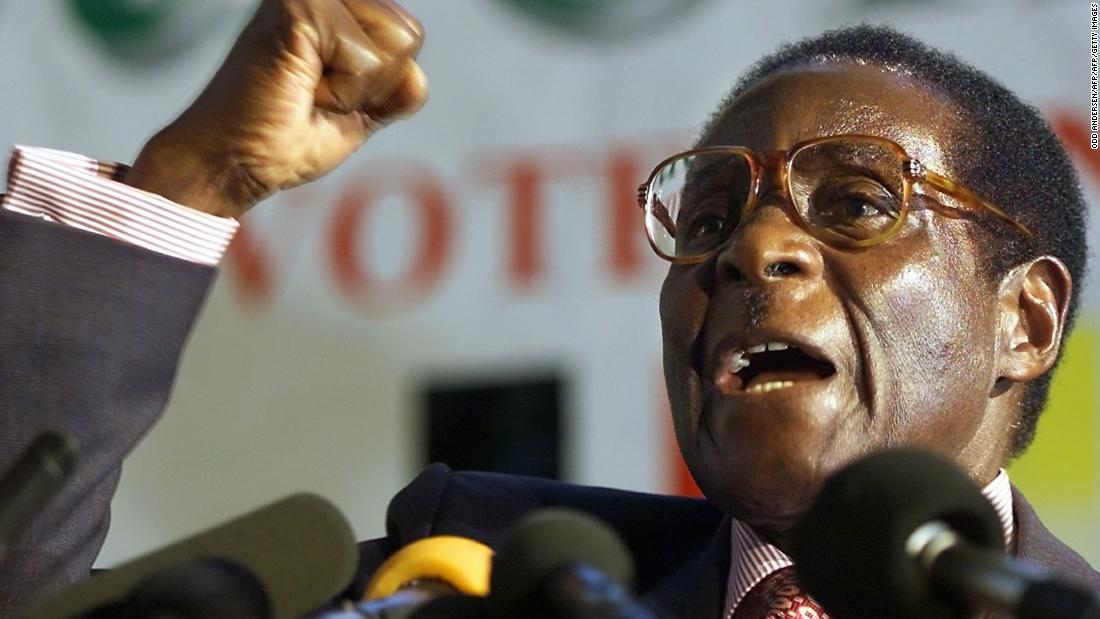By the end of her inglorious three-year stint in Downing Street, even her most loyal supporters admitted that the robotic May would never be regarded as one of the greatest British leaders.
By comparison,
Boris Johnson's off-the-cuff, sunny disposition made him a darling of Conservative Party members who chose him for the top job when May finally resigned, defeated by her inability to get a Brexit deal through Parliament.
On his first day as Prime Minister, Johnson promised a bold new Brexit deal, bashing the "doubters, doomsters, gloomsters" and the political class who he said had forgotten about the British people they serve. It was as if an upbeat attitude alone could be enough to overcome any adversity on the United Kingdom's path to exiting the European Union.
For a moment, it seemed he would breathe new life and, in his words, "positive energy," into the Brexit process. Some thought, just maybe, he could manage to do what May did not.
How quickly it all
went wrong.
Johnson has lost every one of his first votes in parliament, an unprecedented record in the modern era. Undeterred, the Prime Minister purged 21 members of his parliamentary party who voted against him, blowing apart his majority.
Then, his efforts to secure a snap general election -- with the goal of replacing the sacked lawmakers with a new slate of candidates more aligned with his hard-Brexit views -- were scuppered when opposition Labour leader Jeremy Corbyn refused to play along.
Now, he is effectively trapped in Downing Street, with Corbyn holding the keys. The government plans to
propose new elections again on Monday, but the opposition leader says his party will only support the move when its efforts to prevent a no-deal Brexit are locked down.
"Certainly his biggest tactical mistake so far was not to realize that it was Corbyn, as leader of the opposition, who effectively had veto power over when a general election could be held," said Professor Tony Travers, director of the Institute of Public Affairs at the London School of Economics.
"It looks as if the Conservatives and their advisers thought that if they offered a general election to the Labour Party it would jump at the opportunity, but the way things have turned out -- the coming together of the no-deal bill and the possibility that the opposition can frustrate a general election -- creates the possibility of keeping the Prime Minister trapped in government, unable to fulfill his commitment to leave the EU come what may."
Now the newly minted PM finds himself in a position that May never was -- on his knees, begging the opposition for a general election.
How did it come to this?
The bad luck set in with Johnson's decision to prorogue, or suspend, Parliament from mid-September, effectively shortening the time available to lawmakers to block a no-deal Brexit. It will be the longest suspension of Parliament since World War II, and it jolted the fractured opposition parties. Divided on Brexit, they were united in their opposition to what they perceived as an all-out assault on British constitutional conventions.
Since then, the blows have kept on coming -- many of them self-inflicted. The conduct of Johnson's shadowy chief adviser,
Dominic Cummings, has riled many senior Conservatives. First, there was a decision to fire an aide to the chancellor, Sajid Javid, who was reportedly marched out of Downing Street by an armed police officer after Cummings accused her of not being open about her contacts with more Remain-minded members of the party. All the more galling, for some, was the fact that the aide in question was an ardent Brexiteer.
Then, more explosively, was the decision to fire 21 rebellious MPs who voted with opposition lawmakers in favor of a bill to prevent a no-deal Brexit, widely seen as a plan hatched by Cummings. The list included eight former Cabinet ministers, two former finance secretaries, the longest-serving member of the House of Commons and the
grandson of Winston Churchill.
Former Conservative Prime Minister John Major urged Johnson to ditch his aides. "Get rid of these advisers before they poison the political atmosphere beyond repair. And do it quickly," he said in a speech in Glasgow.
On Thursday, in the most potent of humiliations,
Johnson's own brother quit his ministerial post and said he would stand down as an MP -- that rare breed of politician to leave his job in order to spend less time with his family.
"In recent weeks I've been torn between family loyalty and the national interest - it's an unresolvable tension & time for others to take on my roles as MP & Minister," Jo Johnson
tweeted on Thursday.
That seemed to hang like a cloud over the Prime Minister when he made a speech that might have been the opening salvo of an election campaign, under other circumstances.
In front of a wall of police cadets in West Yorkshire, Johnson attempted to recite the caution that police deliver to suspects when they make an arrest, only to stumble over the words and abandon the joke halfway through. He then lurched into some lackluster remarks that had commentators cringing.
Finally, in the heat, one of the cadets behind him sat down, apparently to avoid fainting. Johnson turned to ask her if she was okay, promised to end the event, but carried on anyway.
Journalists' questions were brutal. "Aren't people entitled to ask, if your own brother can't back you, why should anyone else?" one asked.
It is indeed an open question. Certainly, an election is a gamble. But it is a risk that Johnson and his advisers have taken in the hopes that, by turning the broad church coalition of the Conservative Party into a group of Euroskeptics, that it will reconfigure the Brexit alliance and prove enough to win a general election.
If Johnson is able to pull it off, his decision to kick out moderate Conservative members will have effectively set him up to have a far more consolidated, hard-line pro-Brexit party -- saving his skin and redefining the Tories all at once.
But, if his bumbling and, at times, awkward speech Thursday was any indication, he may have lost some of the winning luster that had previously seemed so promising.
His predecessor was endlessly slammed for her poor performances in speeches -- from her robotic dancing to losing her voice -- but she never lined up dozens of bemused police officers as a backdrop to a political stunt.
Yet, unlike May, Johnson was able to ram home the core political message that he intends to take the UK out of the EU "no ifs or buts" by October 31 -- a stark contrast to her central failure to find consensus.
Asked if he could promise the British public that he would not go to Brussels and ask for another delay to Brexit, Johnson said: "Yes I can. I'd rather be dead in a ditch."
https://www.cnn.com/2019/09/06/europe/boris-johnson-theresa-may-brexit-gbr-intl/index.html












